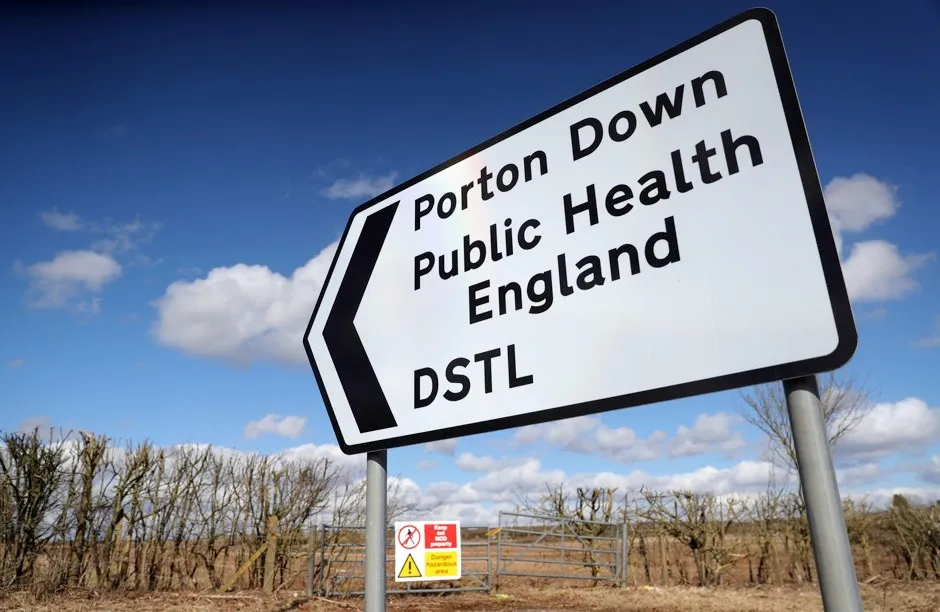A new coronavirus antibody test has been found to be 100 per cent accurate, public health leaders have said.
Public Health England (PHE) said that last week the scientific experts at its Porton Down facility had carried out an independent evaluation of a new antibody blood test developed by a Swiss pharmaceutical company.
The examination found that Roche’s serology test was “highly specific” and had an accuracy of 100 per cent.
The findings have been hailed as a “very positive development” in combating the coronavirus outbreak.
The test is designed to help determine if a patient has been exposed to the virus that causes COVID-19 and whether they have developed antibodies against it.
The detection of these antibodies could help to indicate if a person has gained immunity against the virus.
Read more about coronavirus testing:
- Testing faults blamed for South Korea coronavirus reinfection results
- Behavioural scientists 'very concerned' about mass coronavirus testing
- Coronavirus antibody tests: How they work and when we'll have them
Professor John Newton, national coordinator of the UK Coronavirus Testing Programme, said: “We were confident that good quality antibody tests would become available when they were needed.
“Last week, scientific experts at PHE Porton Down carried out an independent evaluation of the new Roche SARS-CoV-2 serology assay in record time, concluding that it is a highly specific assay with specificity of 100 per cent.
“This is a very positive development because such a highly specific antibody test is a very reliable marker of past infection.
“This in turn may indicate some immunity to future infection although the extent to which the presence of antibodies indicates immunity remains unclear.”

The Department of Health and Social Care (DHSC) said it was delighted that devices were progressing through validation and was working on plans to roll out antibody testing.
It added that an announcement will be made “in due course”.
A spokeswoman said: “Antibody testing is an important part of our strategy to counter the spread of COVID-19 and to help us understand who has had the disease.
“In addition to the recent huge expansion of the UK’s swab-based coronavirus testing capacity, we are exploring the use of antibody testing across the NHS and ultimately the wider public.
“We are delighted that devices are progressing through validation, and are actively working on our plans for rolling out antibody testing and will make announcements in due course.”
Read more about the coronavirus:
- Coronavirus: Should we all wear face masks?
- 5 mental health apps to help you through the coronavirus crisis
- Is lockdown an opportunity for scientific research?
Health Secretary Matt Hancock last week said the UK was in talks with Roche about a “very large-scale roll-out” of coronavirus antibody testing.
Speaking at the daily Downing Street press briefing on 4 May, Mr Hancock said: “Today, Roche, the Swiss global diagnostics company, made a very positive announcement about progress with their antibody test and we’re in discussions with them about a very large-scale roll-out of antibody testing, as well as with some others who may be able to bring this forward.”
But Mr Hancock acknowledged that there had been problems with antibody testing, having previously said the UK would order 17.5 million home testing kits only to find they did not work.
“There has been false hope before in antibody testing and so we’ll make announcements when we’re absolutely ready,” he said.
Can I get coronavirus twice?
There have been a few stories in the press of people apparently being re-infected by the coronavirus SARS-CoV-2. These people reportedly became infected and hospitalised, and then were sent home once they’d tested negative for the virus. Then, days or weeks later, they tested positive again.
But this doesn’t necessarily mean that they caught the coronavirus twice.
First, during recovery from infection, a person may have very low amounts of the virus remaining in their body – low enough that our tests can’t accurately detect it. In this case, the person may be sent home on the assumption that they’re virus-free. However, their body may still be fighting the virus, and a resurgence of the virus (and symptoms) can occur, resulting in a positive test. In this case, it would just be one protracted infection, not a re-infection.
Second, we know that in most people, SARS-CoV-2 generates a strong response from the immune system. With the related coronavirus SARS-CoV, this response creates an immune memory of the virus that prevents re-infection for one to two years, and it’s likely that this is also the case for the new virus. SARS-CoV-2 also has a fairly low mutation rate, which means that it (hopefully) won’t change enough that our immune system no longer remembers it (this is what the flu virus does and why we need a new jab every year).
If this all turns out to be true, then it would suggest that re-infections are unlikely and that the cases in the news reflect testing sensitivity. However, SARS-CoV-2 is so new that we won’t know for sure until we’ve found out just how protective our immune response to the virus is, and how long it lasts.
Read more:
